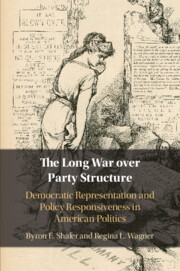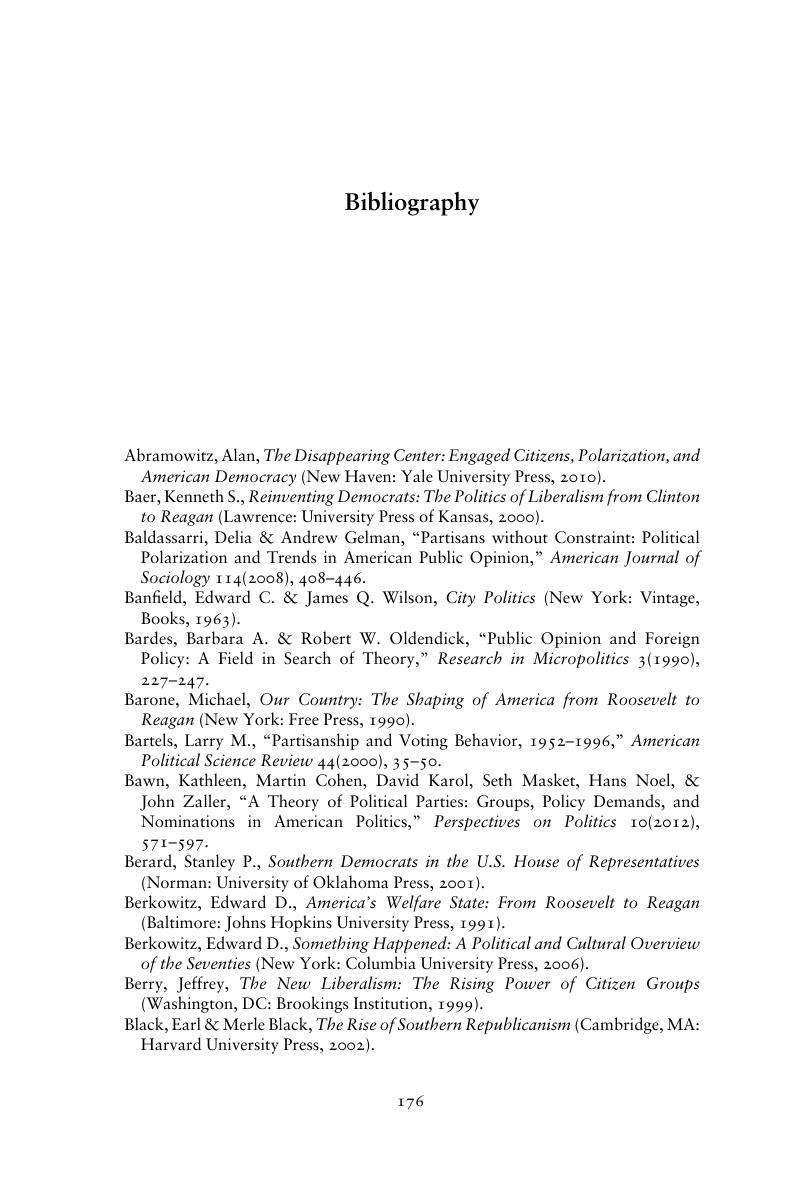 The Long War over Party Structure
The Long War over Party Structure Book contents
- The Long War over Party Structure
- The Long War over Party Structure
- Copyright page
- Contents
- Figures
- Tables
- Preface
- 1 Party Structure in Theory and in Practice
- 2 Party Structure and Representational Impact
- 3 Party Structure and Representational Impact
- 4 A Conclusion to the Long War?
- Afterword
- Bibliography
- Index
- References
Bibliography
Published online by Cambridge University Press: 12 August 2019
- The Long War over Party Structure
- The Long War over Party Structure
- Copyright page
- Contents
- Figures
- Tables
- Preface
- 1 Party Structure in Theory and in Practice
- 2 Party Structure and Representational Impact
- 3 Party Structure and Representational Impact
- 4 A Conclusion to the Long War?
- Afterword
- Bibliography
- Index
- References
Summary

- Type
- Chapter
- Information
- The Long War over Party StructureDemocratic Representation and Policy Responsiveness in American Politics, pp. 176 - 182Publisher: Cambridge University PressPrint publication year: 2019


